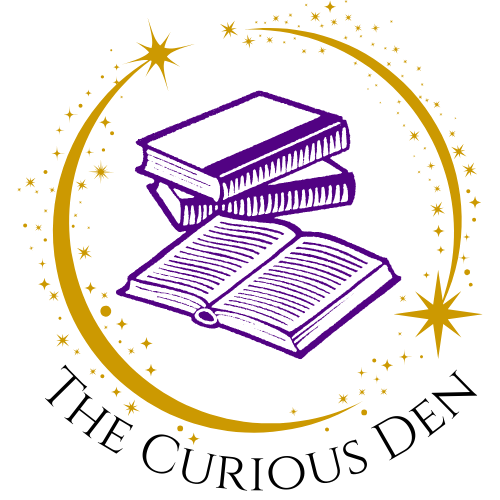Philosophy has shaped human thought for centuries, helping us understand existence, morality, knowledge, and the nature of reality. Whether you’re new to philosophy or looking to deepen your understanding, these 20 books provide a great starting point. From ancient wisdom to modern insights, each book on this list explores profound ideas that continue to influence the world today.
1. The Republic – Plato
One of the most influential works in Western philosophy, The Republic explores justice, politics, and the ideal society. Plato, through the dialogues of Socrates, examines the nature of justice, the role of philosophers in governance, and the concept of the “Philosopher-King.” This book is foundational for anyone interested in political philosophy and ethics.
2. Nicomachean Ethics – Aristotle
In this work, Aristotle presents his vision of the good life and how to achieve happiness through virtue. He introduces the concept of the “Golden Mean,” where moral virtue lies between extremes. This book is essential for understanding ethics and the development of virtue-based morality.
3. Meditations – Marcus Aurelius
Written as a personal journal, Meditations offers insights into Stoic philosophy and self-discipline. Marcus Aurelius, a Roman emperor, reflects on resilience, duty, and the impermanence of life, making this book a timeless guide for personal growth.
4. Beyond Good and Evil – Friedrich Nietzsche
Nietzsche challenges conventional morality and explores the nature of power, free will, and truth. This book criticizes dogmatic thinking and encourages readers to question traditional values, making it a cornerstone of existentialist and postmodern thought.
5. Critique of Pure Reason – Immanuel Kant
Kant’s groundbreaking work addresses how we perceive the world and the limits of human reason. He distinguishes between things as they appear to us and things as they are in themselves, laying the foundation for modern epistemology and metaphysics.
6. Being and Time – Martin Heidegger
This dense but profound work explores the nature of being, time, and human existence. Heidegger introduces the concept of Dasein, or “being-in-the-world,” reshaping existentialist and phenomenological thought.
7. The Prince – Niccolò Machiavelli
A political treatise on power and leadership, The Prince is often seen as a guide to ruthless pragmatism. Machiavelli argues that rulers must prioritize effectiveness over morality, making this book essential for understanding realpolitik and statecraft.
8. Discourse on Method – René Descartes
Famous for the phrase “I think, therefore I am,” Descartes lays the groundwork for rationalism and modern philosophy. He advocates for doubt as a means of achieving certainty and explores the nature of knowledge and existence.
9. On Liberty – John Stuart Mill
Mill’s defense of individual freedom and free speech remains highly relevant today. He argues that personal liberty should only be limited to prevent harm to others, shaping discussions on democracy and human rights.
10. The Social Contract – Jean-Jacques Rousseau
Rousseau explores the origins of government and the legitimacy of political authority. He argues that a just society must be based on a collective agreement where individuals surrender some freedoms for the common good.
11. Thus Spoke Zarathustra – Friedrich Nietzsche
A philosophical novel that introduces Nietzsche’s ideas on the “Übermensch” (Overman) and the death of God. It challenges conventional morality and calls for a reevaluation of values to create a new path for humanity.
12. The Phenomenology of Spirit – G.W.F. Hegel
Hegel’s masterpiece explores the evolution of human consciousness and self-awareness. He introduces the concept of the “dialectic,” where contradictions in thought lead to higher understanding.
13. Leviathan – Thomas Hobbes
A foundational text in political philosophy, Leviathan argues for a strong central authority to prevent chaos. Hobbes describes life in the state of nature as “nasty, brutish, and short,” advocating for a social contract to ensure order.
14. Existentialism is a Humanism – Jean-Paul Sartre
Sartre presents existentialism as a philosophy of freedom and responsibility. He argues that humans define their own meaning and must take responsibility for their choices in an indifferent universe.
15. Tractatus Logico-Philosophicus – Ludwig Wittgenstein
A highly influential work in analytical philosophy, this book examines the limits of language and how it shapes our understanding of reality. Wittgenstein famously concludes, “Whereof one cannot speak, thereof one must be silent.”
16. The World as Will and Representation – Arthur Schopenhauer
Schopenhauer presents a deeply pessimistic view of existence, arguing that human life is driven by an insatiable will. His ideas influenced later existentialists and psychoanalysts, including Nietzsche and Freud.
17. The Problems of Philosophy – Bertrand Russell
A great introduction to philosophy, Russell explores fundamental questions about knowledge, reality, and truth. His clear and concise writing makes complex philosophical ideas accessible to beginners.
18. A Theory of Justice – John Rawls
Rawls introduces the concept of justice as fairness and the “original position,” a thought experiment where individuals design society without knowing their own status. His ideas remain central to modern political philosophy.
19. The Tao Te Ching – Laozi
A foundational text of Daoism, this book explores the nature of the Dao (the Way) and the importance of balance, humility, and effortless action. It offers wisdom on leadership, personal development, and living in harmony with nature.
20. The Consolations of Philosophy – Alain de Botton
A modern take on philosophy, de Botton explores how great thinkers like Socrates, Nietzsche, and Schopenhauer offer practical advice for everyday struggles. This book is a great entry point for those looking to apply philosophy to their personal lives.
